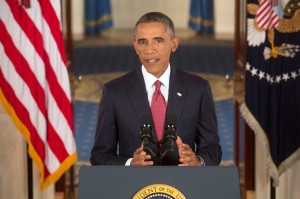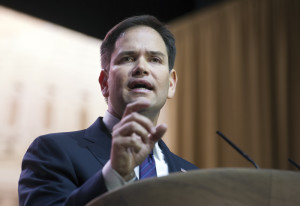
As numerous global crises continue to occur all at once, Americans are expressing interest in doing more to solve global challenges. Even as we’re faced with a difficult budget climate, it is more critical than ever to remind our leaders that these complex crises require America to maintain its role as a global leader in order to have a positive impact.
In the past year alone, there seems to have been a dramatic shift in American’s attitudes toward having an active role in world affairs. Americans are coming around to the view that American global leadership is needed in these turbulent times. A recent Pew poll found that a growing number of Americans—31% to be exact—say the U.S. is doing too little to solve the world’s problems, a vastly different sentiment than last year when 51% of Americans said the U.S. is doing too much to solve global challenges.
More striking, we are seeing these attitudes being backed up by bipartisan comments from leading public officials.
 Last week, as the news concentrated on President Obama’s address to discuss his strategy to combat the ongoing threat from the terrorist group, the Islamic State in Syria and the Levant (ISIL), the second half of his speech talked about the importance of American global leadership in dealing with complex challenges. The president noted that even in a time of challenges, “American leadership is the one constant in an uncertain world;” and it is American leadership that has served to help eradicate global poverty, combat the scourge of HIV/AIDS, and help countries suffering from humanitarian disasters.
Last week, as the news concentrated on President Obama’s address to discuss his strategy to combat the ongoing threat from the terrorist group, the Islamic State in Syria and the Levant (ISIL), the second half of his speech talked about the importance of American global leadership in dealing with complex challenges. The president noted that even in a time of challenges, “American leadership is the one constant in an uncertain world;” and it is American leadership that has served to help eradicate global poverty, combat the scourge of HIV/AIDS, and help countries suffering from humanitarian disasters.
In addition, Senator Marco Rubio (R-FL) argued that, “the world needs more American engagement, not less. Decisive and targeted use of America’s military, diplomatic and economic power will…strengthen America.” Also, former Secretaries of State Henry Kissinger, James Baker, and Hillary Clinton are singing the same tune on the importance of global leadership, with Kissinger releasing a new book last week, arguing that the current global volatility requires America to stay engaged.
 We can only hope that the growing consensus for a more active role on the world stage reinforces the need for development and diplomacy tools, and we’ll continue watching as the debate unfolds leading up to November elections.
We can only hope that the growing consensus for a more active role on the world stage reinforces the need for development and diplomacy tools, and we’ll continue watching as the debate unfolds leading up to November elections.
Another key topic of discussion will be how America and its partners will lead the world forward following the completion of the Millennium Development Goals, as the UN General Assembly opens this week. As a handful of these goals will not be realized by the completion date, American leadership will have a role to play in working to eradicate global poverty once and for all, as well as to find ways to empower those in need to find a better life for themselves.
There will be plenty of issues coming out of the next few weeks, but the conversations on American global leadership will certainly be one that I will be watching.